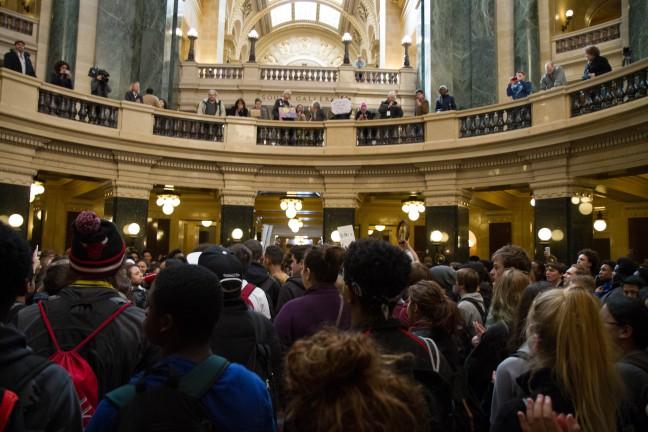To most high school students, civics class means a chance to daydream through some positively arid lectures on the finer points of American governmental structure. To researchers at the University of Wisconsin, however, it might mean a key to increasing political participation. The Wisconsin Center for Investigative Journalism recently laid out this case in its interview with the author of a 2005-2009 study which suggested that students who received a high-quality civics education were more likely to vote in subsequent elections.
While Wisconsin integrates some civics knowledge into its social studies curriculum, unlike most other states it does not require a stand-alone civics class. As the study’s author said, “the time may be ripe to start [the] conversation” about how a dedicated civics course could increase political participation.
Race-blind decisions don’t exist in a society that has always been anything but
The case laid out in the study is simple. Better civics education leads to more participation in elections. End of story. The purpose of civics or the meaning of political participation in American society is not interrogated. It is assumed that these vague concepts are palatable to and desired by everyone. Let’s not accept that at face value however — let’s think about what these things mean in America. My contention is that focusing on civics education leads one to miss entirely the economic, social and political context of “political participation.”
As many a cynical high schooler has noted, the civics class is really about teaching you to conform, man. And though adults don’t often like to admit it, sometimes cynical teenagers are on to something. It isn’t that civics classes mold kids into automatons. It’s that civics classes represent the last chance for the liberal democratic state to directly make the case for its own legitimacy. Mandatory political education is the final time citizens will be forced to sit down and listen to a description of American political structures in what even the teachers acknowledge is a transparent attempt to make them care.
It is interesting that this step even needs to be taken. One would think that if our democracy is so worthy its value ought to be self-evident. Apparently not, though.
Increase in political consciousness, activity should give young people the right to vote
The path from civics education to voting is as straight as an arrow, according to the researchers. In the more traditional classes, students learn about the formal structures of government and how they work on paper. In the more modern courses, students are encouraged to engage in “rich discussions about controversial political issues.” The purpose of the latter curriculum appears to be cajoling kids into seeing political discussion as worthwhile in and of itself. Evidently, allowing students to decide on their own whether electoral participation will change their lives for the better is too crass. Or perhaps, too risky.
The civics teacher and their backers are indeed facing an uphill battle. In a longstanding American trend, more people did not vote in the 2016 presidential election than voted for the winning candidate. The demographics of those that do not vote skew hard towards the poor, the non-white and the young. Those are the people civics education is supposed to reach. Is it that they’re uneducated or that they see something the rest of us don’t?
Frankly, using civics education as a lever for increasing electoral participation is putting a Band-Aid over the chest wound of American civil society. It is to dismiss out of hand the notion that white and rich people have an iron grip on the direction of this country. Or worse, it is to acknowledge those problems and take the vulgar stance that a 20 percent bump in voter turnout would fix it all. I have no doubt that someone will reply to this article saying “the only way to change things is to vote, see!” I don’t want to get into it here, future Concerned Reader, but you’re wrong.
So if we expanded our civics curriculum in Wisconsin, kids would spend more time learning about how our government and our society are supposed to work. But almost everyone who has held a job or read the news in the last decade or so feels at least some cognitive dissonance with those myths. After a while, how many people still believe what they were taught in high school civics?
That’s the question we should be talking about. But who cares, as long as people vote, right?
Sam Palmer ([email protected]) is a recent graduate with a degree in biology.




















